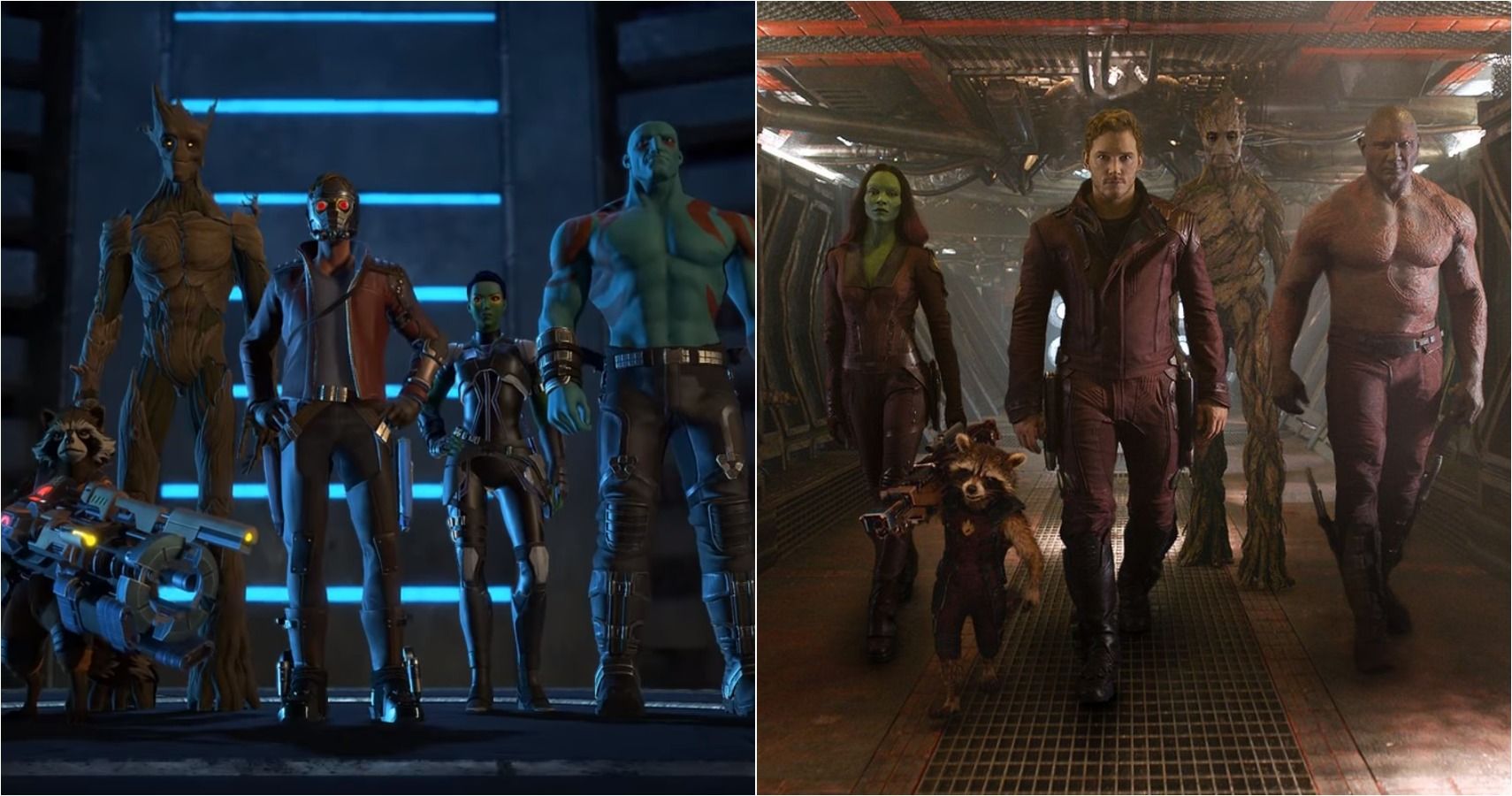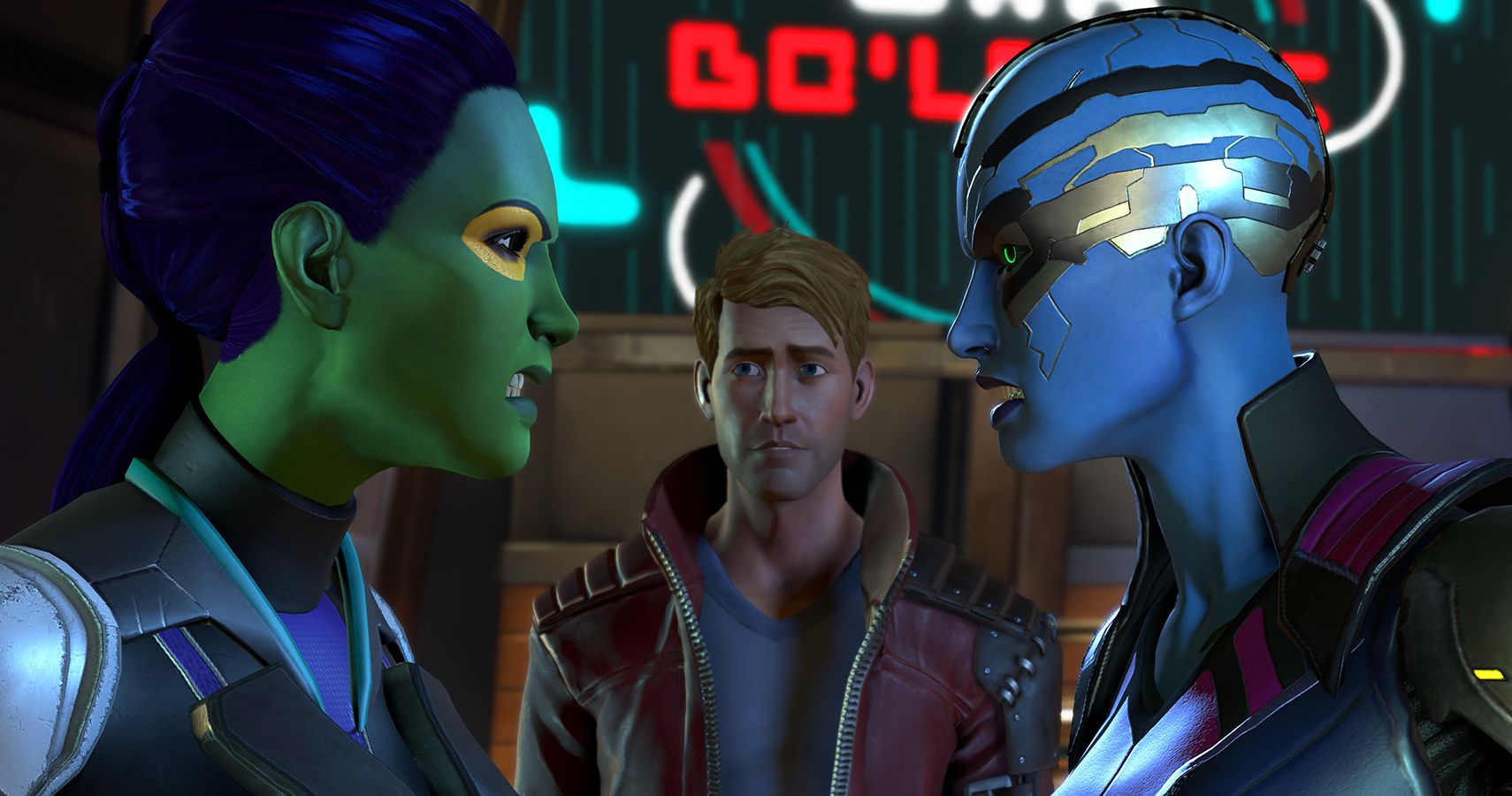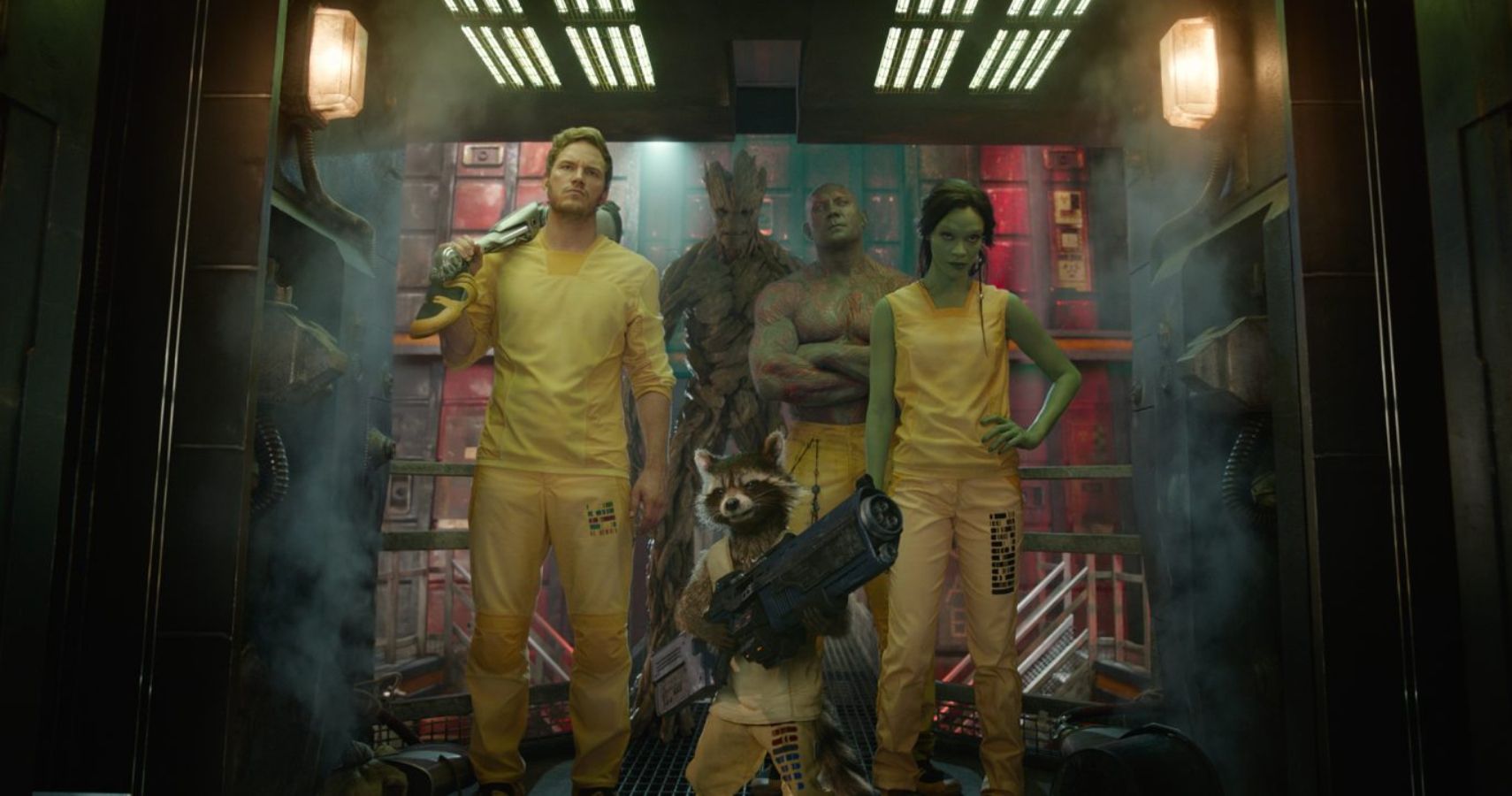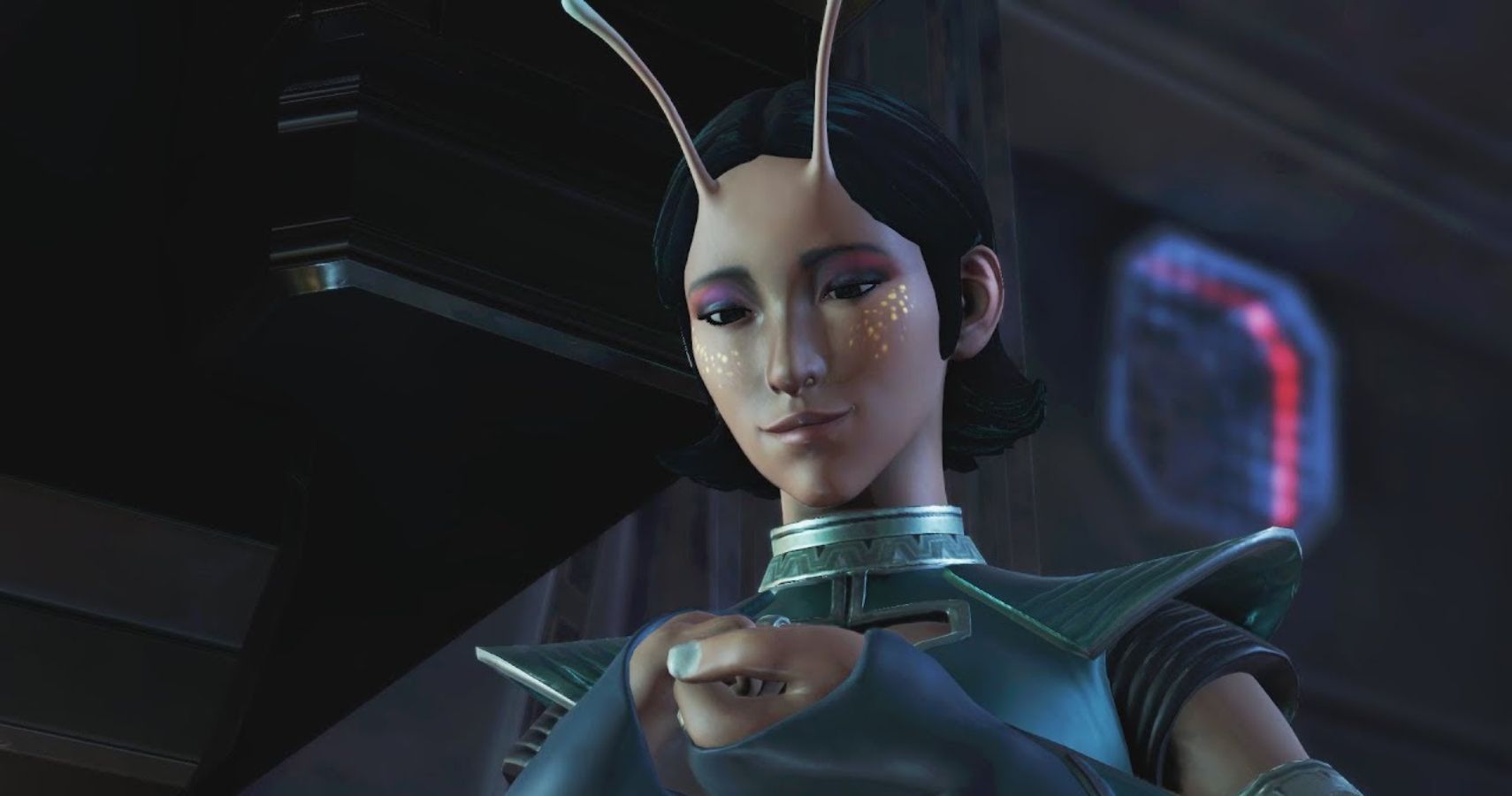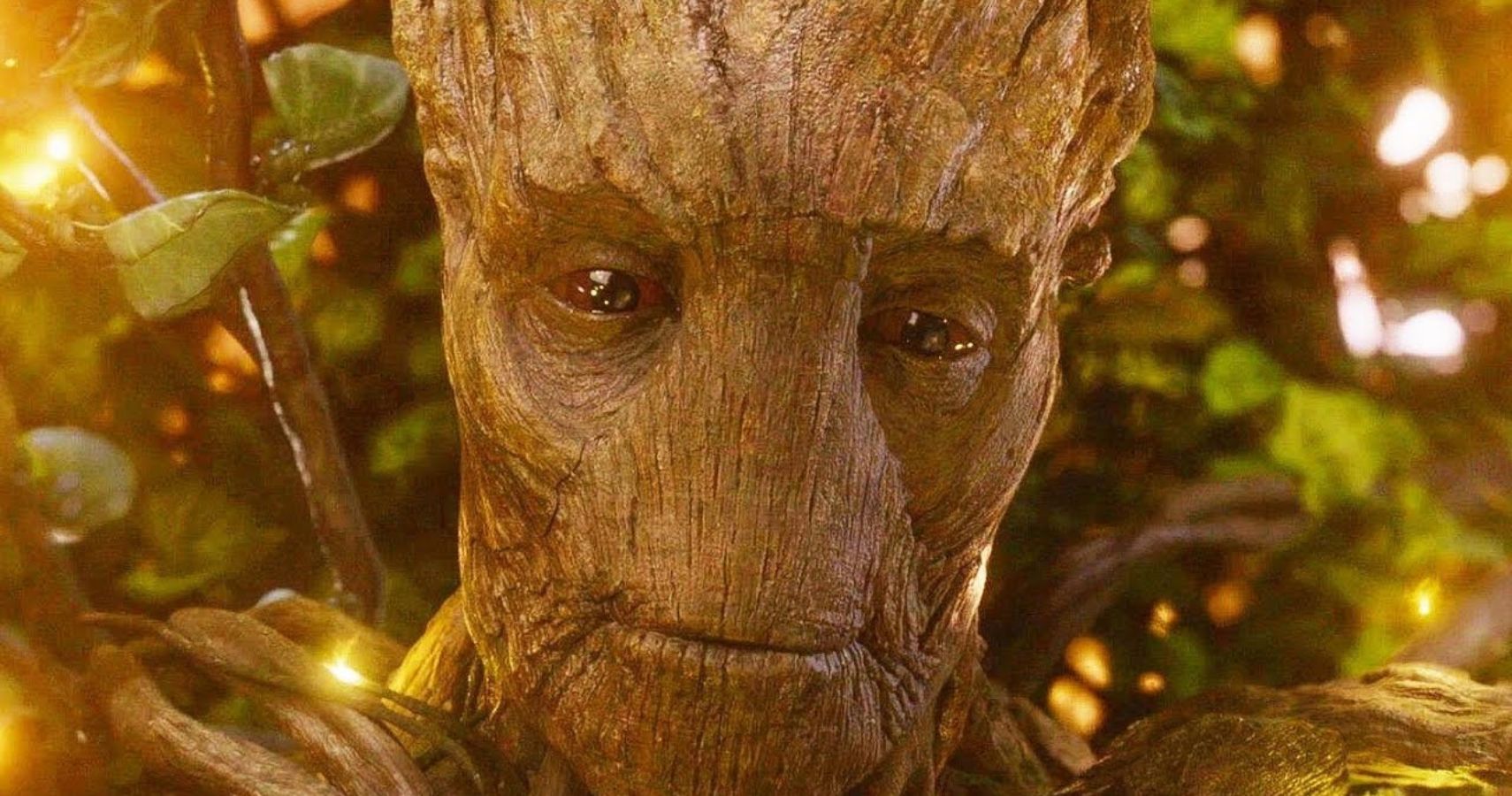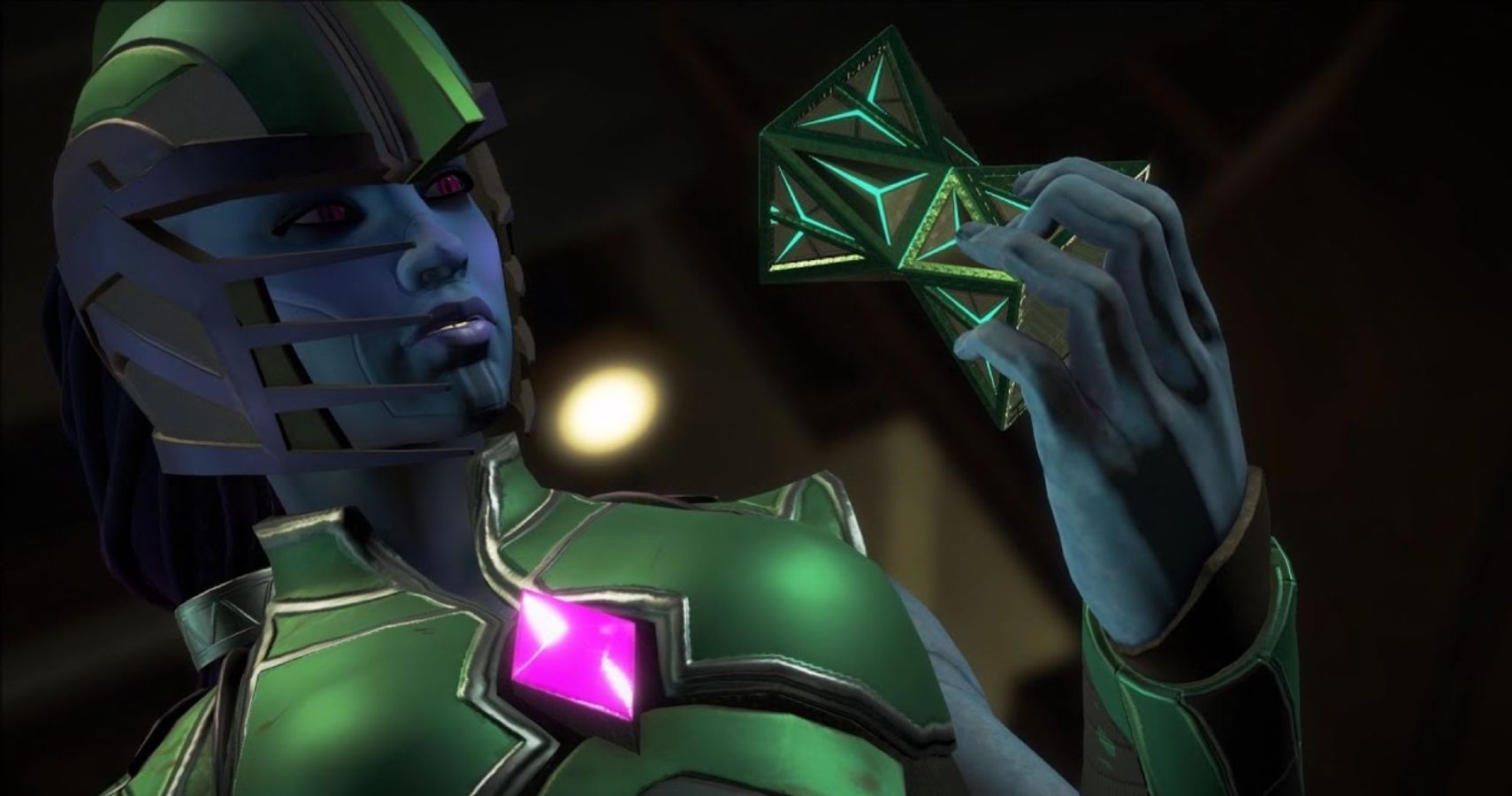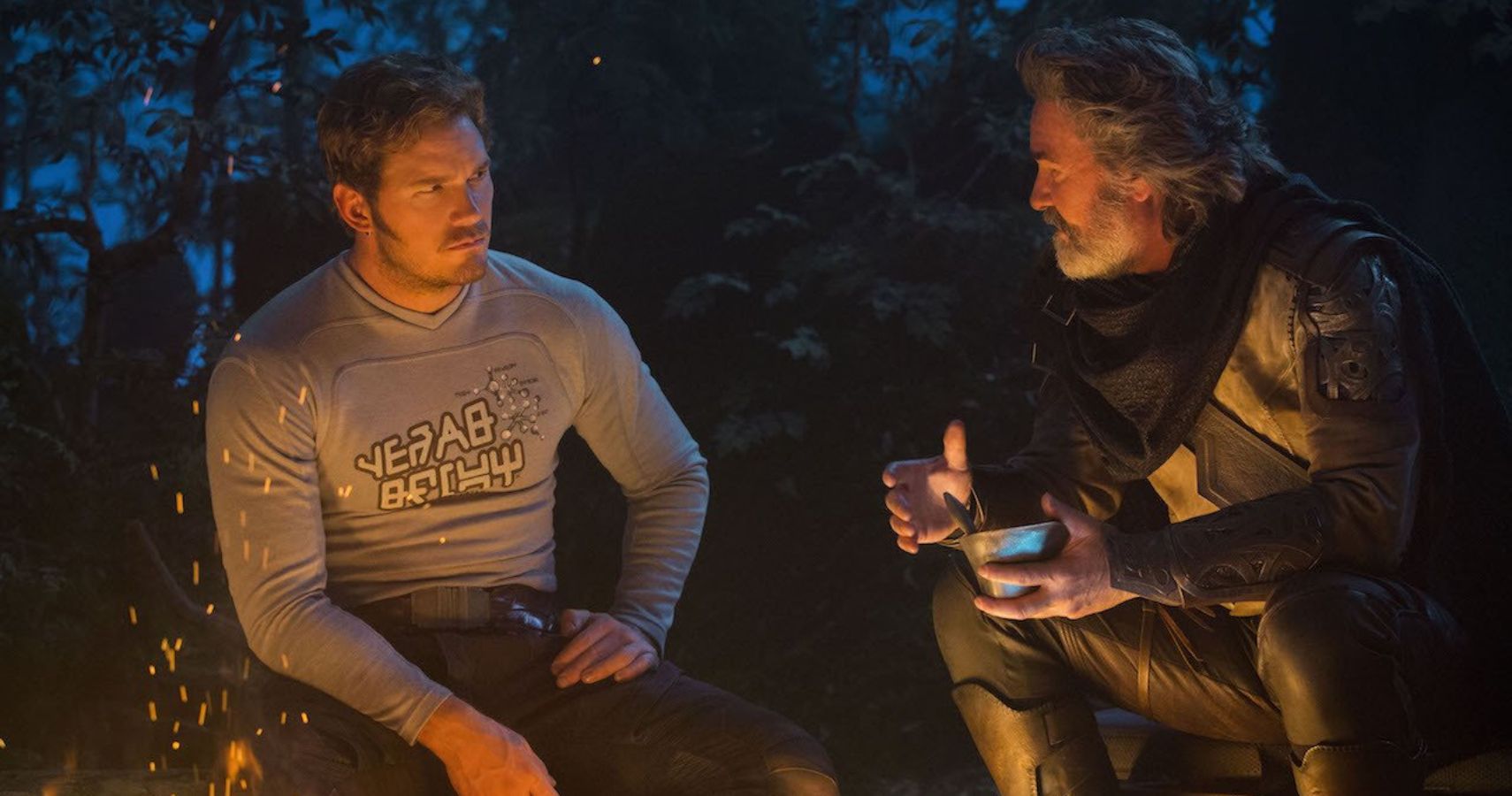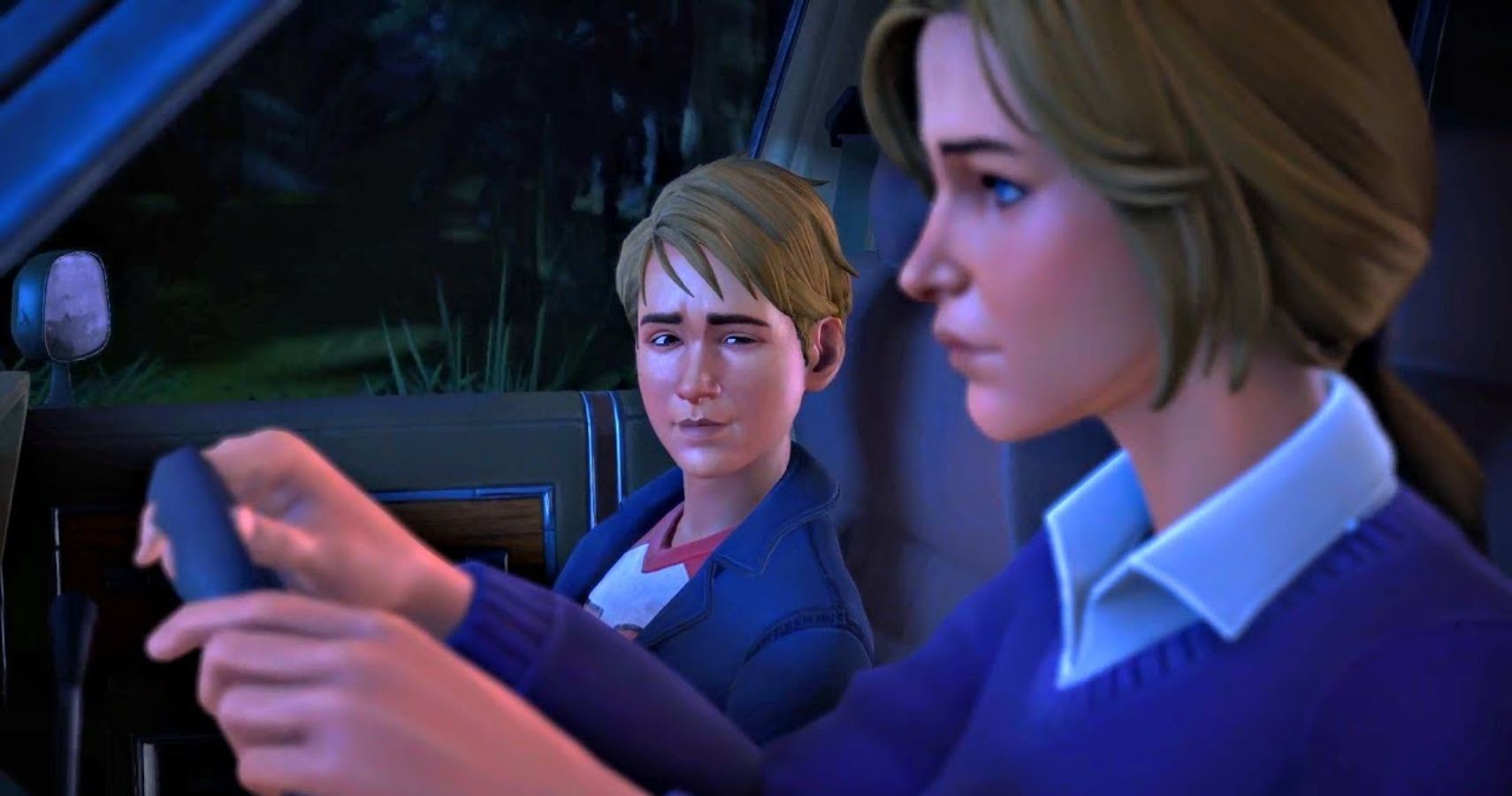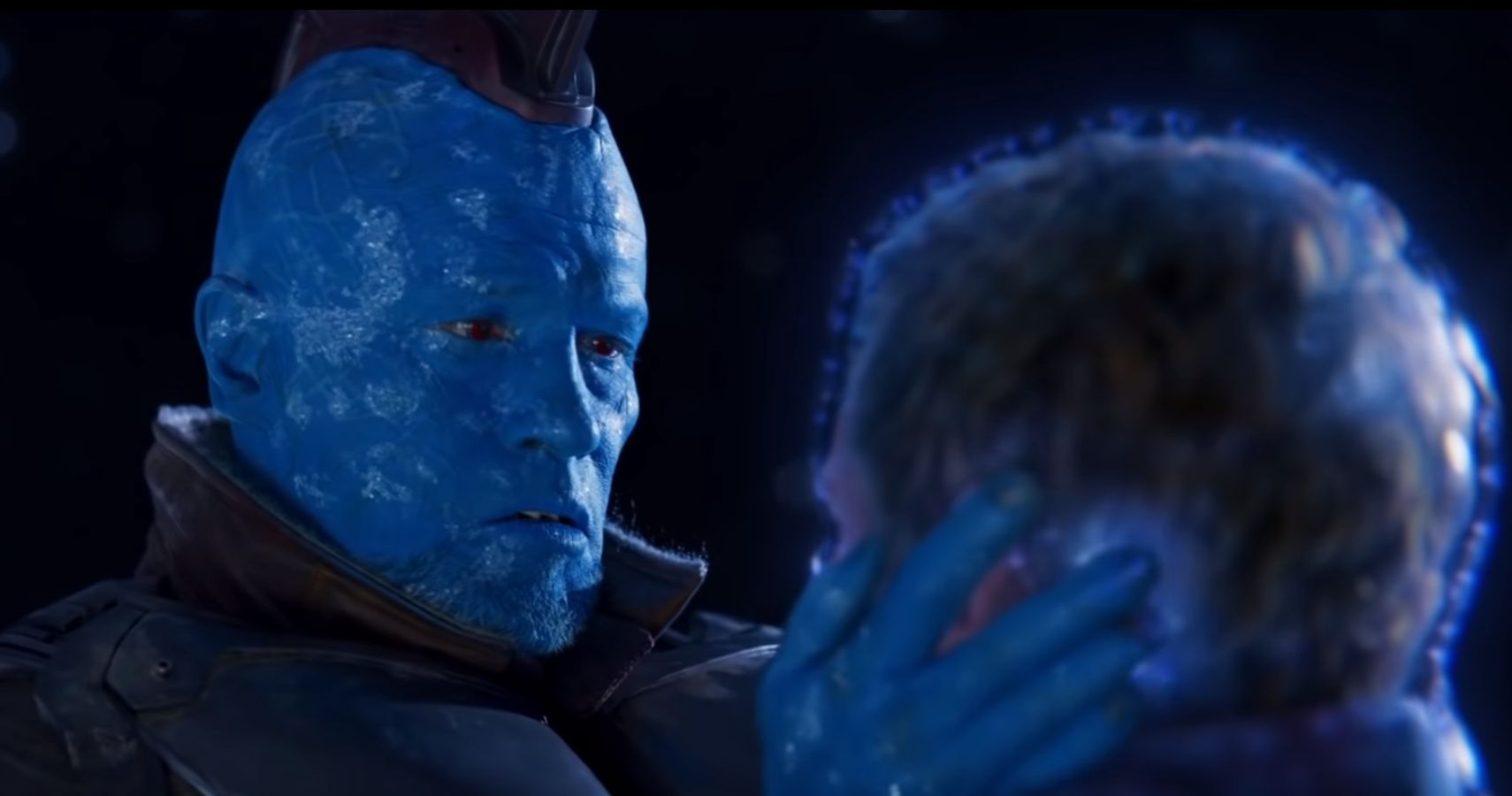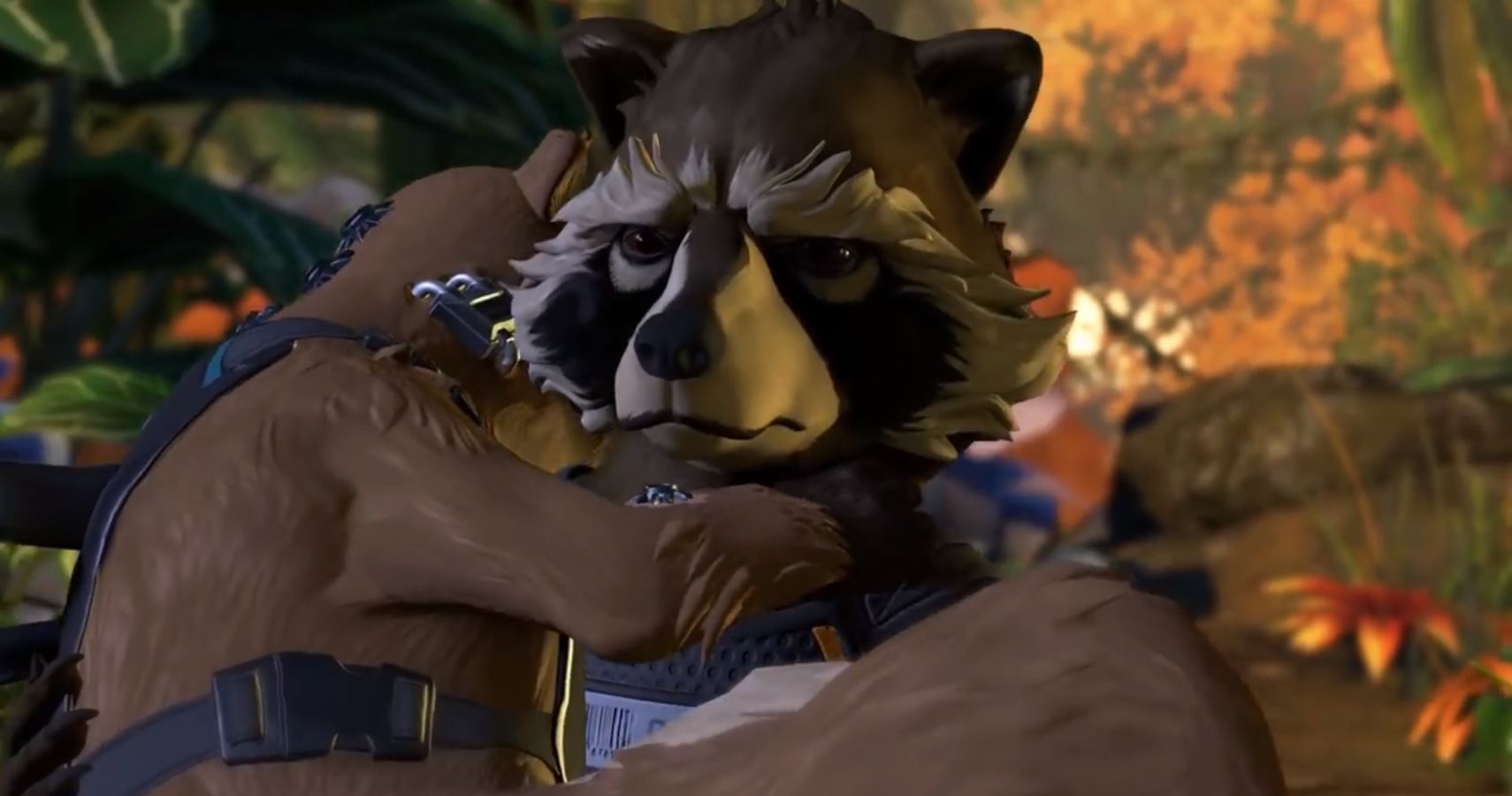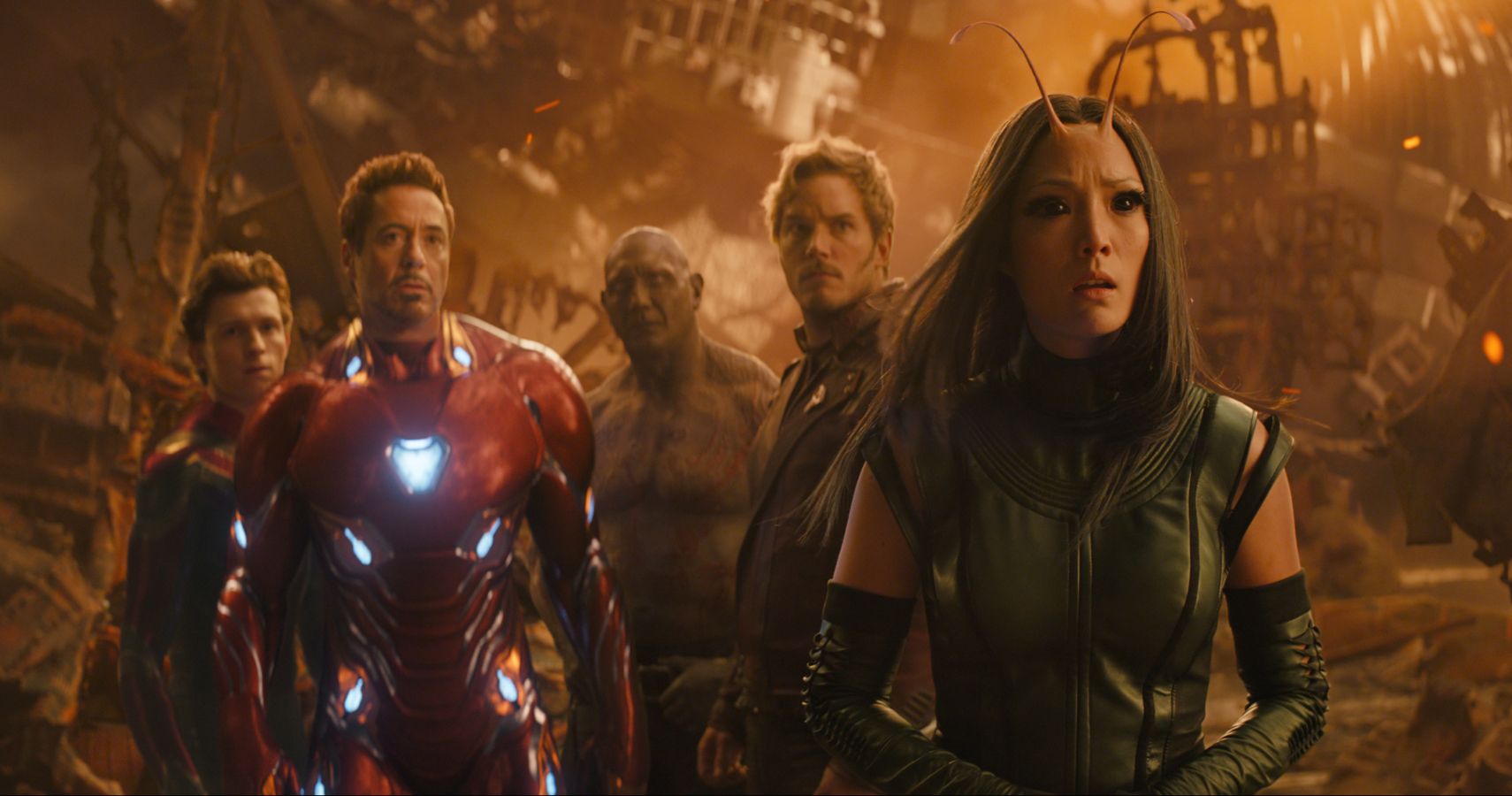Marvel's Guardians of the Galaxy films introduced a large amount of non-comic book fans to the always humorous and usually heroic team. Then Telltale Games released a video game version of the same group, which people immediately compared to the popular movies.
As games and films are very different pieces of media, they're difficult to compare as a whole. Luckily, as Telltale makes very narrative-based games, it's possible to compare how their story stacks up to the two films (not including Avengers: Infinity War or Endgame).
So this list features five ways that Telltale's team exceeded Marvel in regards to the narrative and five ways it couldn't live up to the MCU's storytelling.
*Watch out for spoilers for Guardians of the Galaxy: The Telltale Series, Guardians of the Galaxy, and Guardians of the Galaxy Vol.2*
10 Better: Actually Shows Gamora And Nebula's Plight
The Guardian of the Galaxy movies (particularly the second one) explain how Thanos pitted Gamora and Nebula against each other, and how that fuelled the sisters' dislike for one another for many years.
Their feud is better developed in Telltale's version, as the use of flashbacks allows everyone to see how Thanos manipulates his daughters. The scenes show how the Titan encourages them to compete against each other to be his best warrior, and he even attempts to convince each of them that the other is a liability. Actually getting to witness why Gamora and Nebula hate each other enables you to feel a lot more for both sisters, especially Nebula, who is often presented as an antagonist.
9 Worse: Its Weaker Origins
Obviously, with the game not focusing much on an origin story unlike the first movie, it was always going to have a less detailed backstory on how the Guardians met, but even taking that into account, it still fails to live up to the film.
In the game, they all happen to be put in the same cell, Star-Lord then decides they should work together to escape, and instantly they're a team. Whereas, the film links them all together first by each having what the other wants, from Infinity Stones to bounties (more specifically money). For everyone to get what they wish, they need to be out of prison, so they're forced to team up to escape. The movie version is a lot more logical and enjoyable.
8 Better: Mantis Gets A Bigger Introduction
There's nothing outright wrong with the way Mantis is introduced in the second film, but as Ego is revealed at the same time, her appearance seems insignificant in comparison. The game does her more justice though, with her first appearance being the culmination of a multi-episode mystery.
Her hidden messages within Peter's Mom's memories are a huge part of the first few episodes, as the team follows them to find and free her. Peter freeing her from the tomb, is a much bigger moment than when she just walks out of a ship beside Ego.
7 Worse: Groot Isn't As Significant
To take a large tree-like figure that can only say, "I am Groot" and make him any more than comic relief is difficult. However, Marvel use him perfectly in the movies by allowing him to be a comedic character most of the time, but also provide him a few big moments to shine.
In the first movie, his sacrifice is one of the most memorable scenes in the film, and in its sequel, he is vital to the team by planting the bomb that eventually kills the main villain Ego. During the game, his flashback does trigger the team getting back together, but that's his only real significant moment, and it doesn't feel as monumental as what he does in the films.
6 Better: Villain's Motive
Ronan and Ego both have an incredible thirst for power, and that is their main motivation in their respective films. An antagonist wanting to be an all-powerful ruler and/or destroyer is far too common in films, games, and television.
The game's main villain Hala The Accuser, wants that same power, however, it is a secondary goal for her. Her primary motivation is to bring her son and her people back to life. Despite the noble goal, she's still evil because of all the pain and suffering she intends to cause to achieve it, yet you can sympathize with her which makes for a more compelling villain.
5 Worse: Lack Of Personal Connection Between Villian And Heroes
While Hala has better motives than the film villains, she lacks a personal relationship with any of the Guardians. She only comes into conflict with the crew because they all want to get their hands on the Eternity Forge.
This makes Hala's defeat not very emotional because none of the main characters care about her at all. In contrast, when Peter's father/villain Ego perishes, it's a far more powerful scene due to their personal connection and how it affects Quill. It always makes for a more interesting dynamic when a protagonist has a real connection to the main antagonist.
4 Better: The Story Of Peter And His Mom Is Even More Emotional
Nobody can dispute that the beginning of the first Guardians of the Galaxy film is heartbreaking. Peter saying one last goodbye to his mom is one of the saddest moments in the whole of the Marvel Cinematic Universe. However, it still can't compete with Telltale's version of Peter's Mom's story.
As during the game's flashbacks, you get to observe plenty of sweet moments of the mother and son pair before she passes. These scenes make her death much sadder as unlike in the movie, you actually know the character, and you witness the illness start to affect her. Although at least the game potentially provides a happy ending to the story, as it is possible to revive Peter's Mom at the end of the game if you make certain choices.
3 Worse: Yondu's Involvement
Despite being an iconic character, Yondu only has a small role in the game. He's only involved in a flashback showing how he and Peter met, and a scene where the Guardians go to him to get their ship fixed.
It's unfortunate because Yondu is fantastic in both movies. The father and son dynamic he shares with Peter is consistently entertaining and leads to one of the best/saddest moments in either the game or the movies when Yondu sacrifices himself to save Quill. With him being such a significant Guardians of the Galaxy character, he deserved a bigger role in the game.
2 Better: Shows A Deeper Side Of Rocket
Telltale managed to make Rocket Raccoon more than just a hilarious jerk. Once again, their use of flashbacks provided an opportunity to deepen a character.
In Rocket's case, the flashback shows his relationship with an Otter named Lylla, who he was incredibly close to. These scenes show a softer (although still sarcastic) side to Rocket as he truly cares for Lylla and wants her to escape the facility they're in. There are a few times in the films where he shows off a bit of a deeper side (usually concerning Groot), but never as often as he does in the game, through both the flashback and the possible ending where Lylla gets brought back to life.
1 Worse: Doesn't Set Up For Anything Bigger
One thing that both of the Guardians of the Galaxy films have in common with the game is that they're all fun stand-alone adventures, but the movies also help set up bigger things. The first film establishes Gamora and Nebula's relationship with Thanos, creates the idea that the Infinity stones are incredibly powerful, and initiates the budding romance between Peter and Gamora.
All these plot points play a part in Avengers: Infinity War (and to a lesser extent Avengers: Endgame) and make the first Guardians movie a required watch to fully appreciate the MCU. The game does a little set up of its own with a post-credits sequence, but with Telltale's troubles, it's very unlikely it'll ever lead anywhere.

